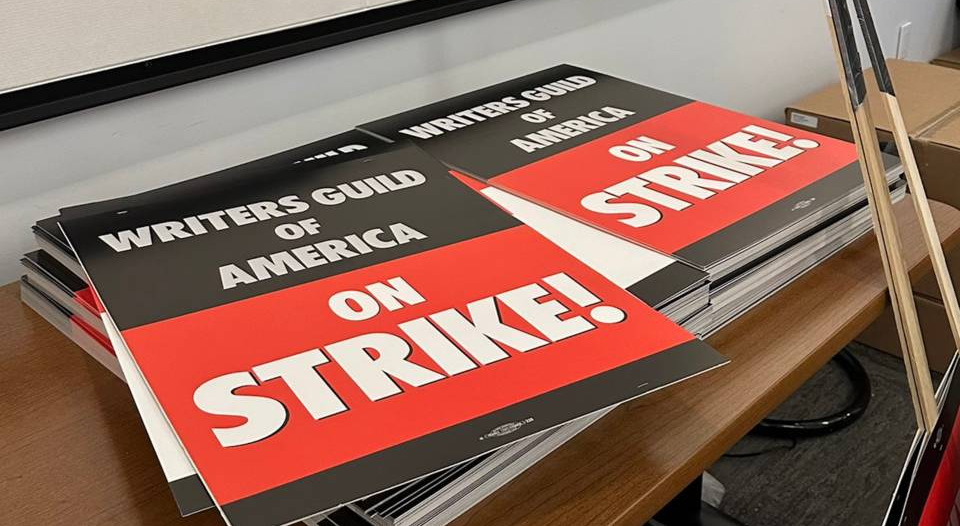Over 10,000 Hollywood movie and television writers have gone on strike due to unstable working conditions and pay, marking the first time US TV and film productions have taken a grinding halt after 15 years of labor peace.
After failed negotiations with studios and streamers, the Writers Guild of America (WGA) called for a work stoppage demanding higher pay, minimum guarantees of stable employment, and a larger cut of the profits from the booming streaming industry. The strike could have catastrophic effects on the US entertainment industry as late-night shows will come to an immediate stop and television series and movies scheduled for later this year will face major delays.
According to WGA statistics, half of TV series writers now make minimum wage, as the average payment for a senior writer has dropped 4 percent over the past decade. While writers’ pay has decreased, the entertainment industry has paid executives extravagant salaries including a total of one billion dollars to the top twelve media executives in 2021.
The issue of artificial intelligence (AI) is yet another one up for discussion. The WGA wants to put safeguards in place to prevent studios from using AI to create new scripts from existing text. Additionally, writers wish to avoid being asked to revise AI-created draft scripts.
The Alliance of Motion Picture and Television Producers, which negotiates on behalf of Comcast Corp, Disney, Warner Bros Discovery, Netflix, and hundreds of production companies, said in a statement that its offer included “generous increases in compensation for writers.” The studio also stated that it is committed to reaching a fair agreement and is still willing to engage in further talks.
Meanwhile, the union, representing the writers, said in a statement that they had “unanimously voted to strike.” Other Hollywood labor unions, including the actors’ SAG-AFTRA and the directors’ DGA, have expressed their support for the writers as they plan to hold separate talks with studios this summer.
The WGA stated, “Here is what all writers know: the companies have broken this business.” “They have taken so much from the very people, the writers, who have made them wealthy.”
The last WGA strike, in 2007 and 2008 lasted 100 days while costing the California economy an estimated $2.1 billion as a result of production being halted.


